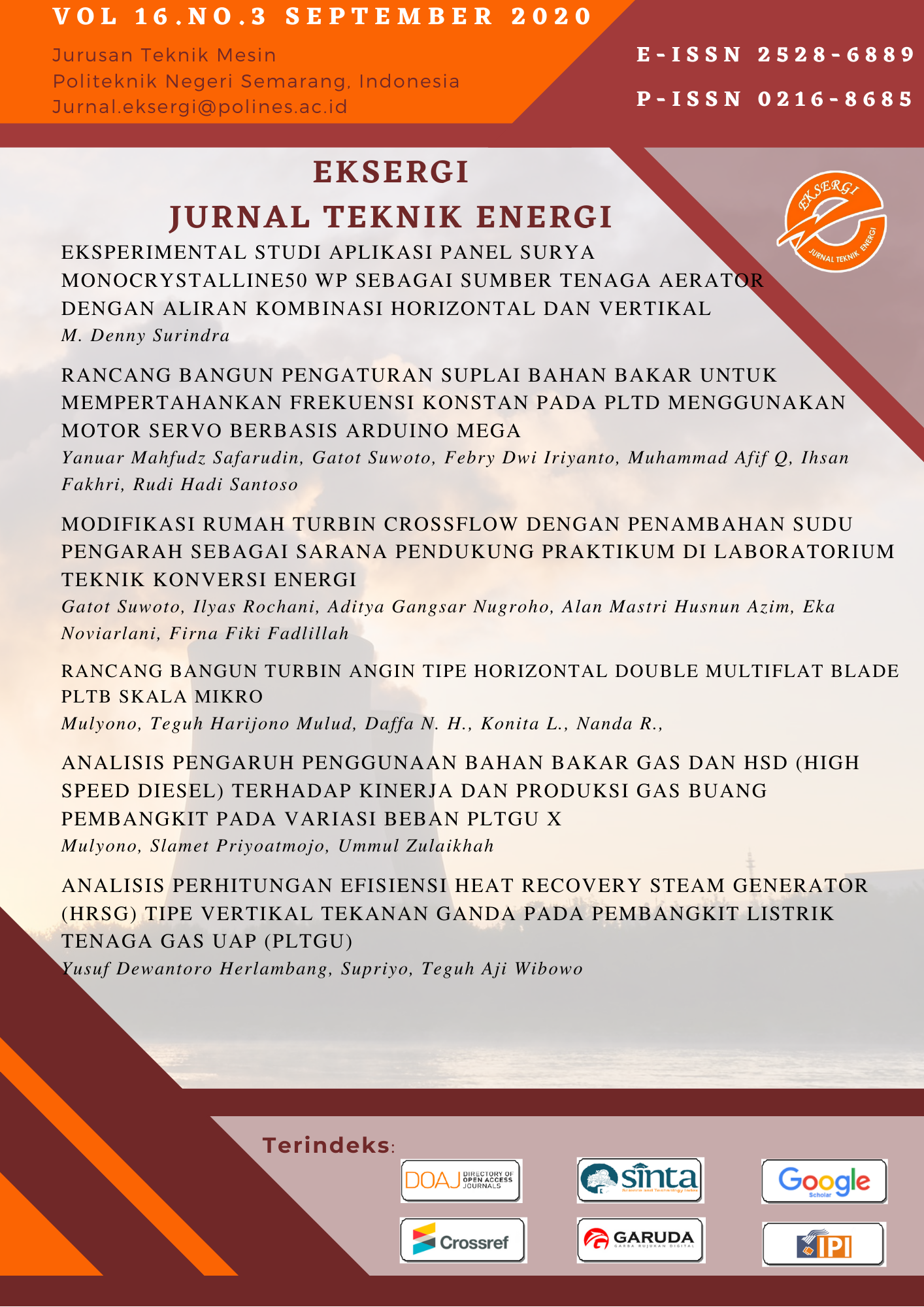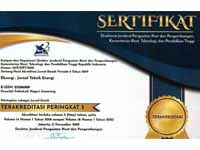ANALISIS PERHITUNGAN EFISIENSI HEAT RECOVERY STEAM GENERATOR (HRSG) TIPE VERTIKAL TEKANAN GANDA PADA PEMBANGKIT LISTRIK TENAGA GAS UAP (PLTGU)
DOI:
https://doi.org/10.32497/eksergi.v16i3.2218Keywords:
Efisiesni, HRSG, Overhaul, Kalor, Suhu air umpan, Massa gas buang, Massa uap, Beban.Abstract
Heat Recovery Steam Generator (HRSG) merupakan generator uap yang memanfaatkan energi panas gas buang turbin gas untuk memanaskan air sehingga berubah fasa menjadi uap, uap tersebut digunakan untuk menggerakkan turbin uap. Meninjau pentingnya HRSG dalam sebuah Pembangkit Listrik Tenaga Gas Uap (PLTGU), maka diharapkan efisiensi HRSG selalu dalam kondisi terbaiknya. Tujuan penelitian ini adalah menganalisa efisiensi HRSG dalam sebuah PLTGU, sehingga diperoleh penyebab didapatkannya nilai efisiensi, serta membandingkan kondisinya ketika dalam keadaan setelah overhaul dan sebelum overhaul. Efisiensi HRSG didapat dari pembandingan manfaat kalor keluar HRSG dan kalor gas buang masuk HRSG, sehingga didapat bahwa efisiensi HRSG setelah overhaul adalah 79,76% sedangkan efisiensi sebelum overhaul adalah 78,36%, hal ini dapat terjadi karena meningkatnya kualitas dari parameter-parameter yang dibutuhkan, yaitu meliputi: suhu air umpan, aliran massa gas buang, kemampuan menerima beban dan aliran massa uapyang dihasilkan.Downloads
Published
Issue
Section
License
Authors who publish with this journal agree to the following terms:Authors retain copyright and grant the journal right of first publication with the work simultaneously licensed under a Creative Commons Attribution License that allows others to share the work with an acknowledgement of the work's authorship and initial publication in this journal.
Authors are able to enter into separate, additional contractual arrangements for the non-exclusive distribution of the journal's published version of the work (e.g., post it to an institutional repository or publish it in a book), with an acknowledgement of its initial publication in this journal.
Authors are permitted and encouraged to post their work online (e.g., in institutional repositories or on their website) prior to and during the submission process, as it can lead to productive exchanges, as well as earlier and greater citation of published work (See The Effect of Open Access).







